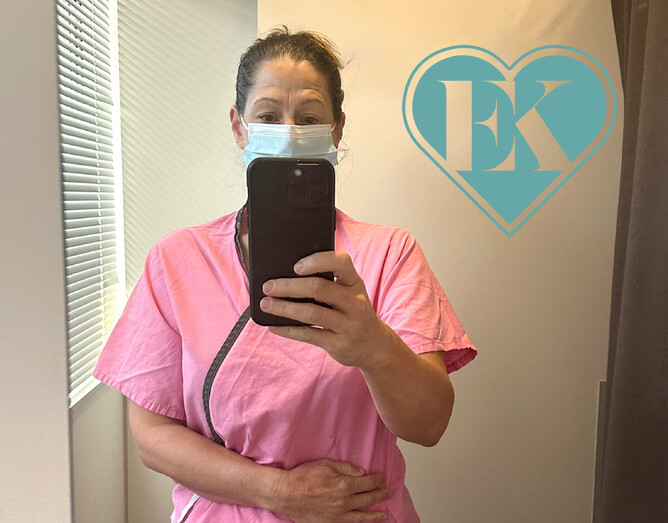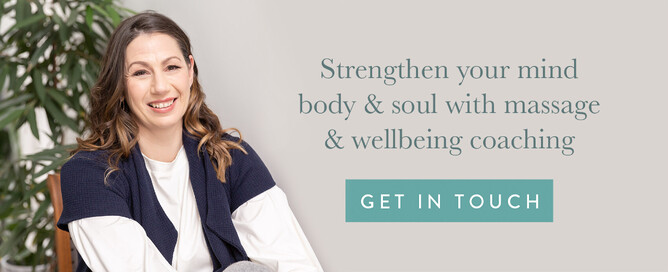Content warning: This blog refers to medical trauma, please be kind to yourself if you are having a hard time or if you are too close to the subject matter right now. We’d love for you to bookmark this page and return when you’re feeling ready.
1) Don’t miss your screening and health checks. Cervical smears and breast screening saves lives.
A cervical smear saved my life.
Even when we think we’re too busy, we should always keep up-to-date with our health checks – they’re an important part of our wellbeing.
It was two-and-a-half years since my last smear, and I had been high-risk before but had been given the all-clear. Then I got a smear showing abnormal results, so I got referred to a gynaecologist. Because of my congenital heart condition, we decided I needed to spend a night in and have some antibiotic cover.
That was Friday, I came home Saturday, and everything was fine.
The following Thursday, I started bleeding quite heavily.
2) My ED trauma. Coping with flashbacks and feeling triggered – drawing on my health coaching, meditation, and resilience training to get in the best physical and mental place for surgery.
I went to bed and the bleeding stopped. I took the dog for a walk in the morning, and half an hour later I started bleeding profusely.
I went to hospital and told them I was haemorrhaging. They told me to take a seat. I said, “You don't understand, I can't sit down, I'll make a mess. I feel like I'm going to pass out.”
I kept bleeding and I was lying in pools of blood in the ED waiting area. Apparently, I wasn't showing too much stress, even though my blood pressure was dropping.
I got this sensation where I felt I was burning up from the inside out, like my whole body was getting hotter and hotter and I was going to explode.
I passed out. They gave me some drugs and brought me back around. All of this happened in the ED.
When the gynaecologists came down, they were shocked at what they found. They quickly got me ready for surgery.
When they lifted and rolled me onto the table, there was a litre and a half of blood and a massive clot. I lost around four units of blood in total. They spent three hours in theatre to stop the bleeding and save my life.
I’m lucky I survived this ordeal. You can read more about it here and why in 47 years of using the hospital system I’ve never seen it this bad.
Back at home, I had flashbacks of being in ED and when I was crashing. I was constantly reliving that experience, unable to sleep, and becoming increasingly anxious.
I’ve experienced post-traumatic stress from having heart surgeries, so I recognised I was having the same feelings.
I knew to heal psychologically that I needed to meditate more, speak to my psychologist, and use the coping mechanisms I’ve picked up throughout my life.
I started haemorrhaging again and was in and out of hospital for the next few days. When I met my surgeon, we figured out I probably needed a hysterectomy, but we had to wait for the smear results.
Biopsy results came back which showed there was no cancer yet, but it showed abnormal cells which were at risk of becoming cancerous.
Because I was still bleeding heavily, we had to wait six weeks for the hysterectomy otherwise there would be complications.
I was booked for Southern Cross, but they couldn’t get an anaesthetist, so I got pushed back another five days.
During those eight weeks I struggled to return to work, felt really tired, had flashbacks from flatlining in ED, and was constantly worried about bleeding.
I had eight weeks of to-ing and fro-ing from hospital and knowing I had this big surgery coming up. I asked myself: What can I do to get myself in the best place mentally?
This is what I did:
Light exercise: I slowly got back the courage to walk my dog. I stayed close to home in case I haemorrhaged again. I walked every day to get as fit as I could.
Sleep: I tried to have good sleep hygiene and go to bed and wake up at the same time.
Practised a lot of mindfulness.
Spoke to trusted friends.
Saw my psychiatrist.
Tried to eat as healthily as I could and cut down sugar.
Stopped drinking alcohol.
I had a full hysterectomy. My surgery went well apart from a haematoma which slowed down my recovery and meant I needed extra painkillers and stayed in overnight.
When I talked to the surgeons everybody was impressed with my mindset and how I got through.
3) The importance of self-advocacy or having somebody else to advocate for you.
A crucial part of my role as a health coach is to teach people the skill of being able to advocate for themselves and make informed decisions.
In the ED at Wellington hospital, I knew it wasn’t going to plan. I kept saying to the staff, this isn’t right.
I think I'm incredibly lucky that I've grown up in the hospital system. Having had open heart surgery myself, a son who’s also had open heart surgery, and my mum who was a hospital physio, I know the language, I know what words to speak and when.
Even then it’s hard. Self-advocacy is a skill we have to learn to develop, refine and practise because it helps us achieve better health outcomes.
Our brain can only hold so much and generally we tend to cling to negative information. It's important to have a support person with you to help retain the information and take notes. Or even ask your specialist if you can record the conversation. You have such a small time slot, and it is your one time to ask questions and advocate for yourself.
I work with a lot of pregnant women going into labour and I'll often coach them on how to advocate for themselves. If they bring a partner to support them, I coach them on using a safe word so their partner knows to step in and advocate on their behalf.
4) Meet yourself with awareness, compassion, and acceptance to move forward through pain and trauma.
Acceptance Commitment Therapy (or ACT) works by accepting where you're at now, working with it (not avoiding or numbing it), being flexible and letting go of rigid thinking and behaviour. I use it a lot with my clients.
I was able to overcome my flashbacks quite quickly.
One way was through bedtime rituals.
I made sure I had a warm bath.
I didn't watch any TV before I went to bed.
I had a Sleepytime tea.
I put my favourite sheets on my bed.
I did breathing exercises
I told myself, I’m just having a thought.
The more you resist fear, the more fear grows.
Suddenly you're doing all these things to avoid this one thing. And generally, that one thing is nowhere near as bad as what we've made it out to be.
It might be that if you are worried about going to bed and having flashbacks, you stay up late and watch TV. And that's avoiding, it might help in the short term. It might help you forget, but the next morning you find it difficult to get up because you stayed up late and didn’t have a good sleep. So that's taking you away from your health goals of following rituals, prioritising your wellbeing, and feeling energised the next day.
Rather than avoiding, numbing, or distracting yourself with food, technology, or alcohol, acknowledge your thoughts and feelings, meet yourself where you’re at with compassion, and finally let it go. You might need professional support to work through this process.
And even sometimes saying: I'm having a thought and it’s this kind of thought – when you name and tame something it loses its power.
5) What resilience means to me and how this has changed over the years (knowing when to push through and knowing when to soften).
Resilience is having self-compassion, self-acceptance, the inner ability to know what I need from myself, and when I need to seek help from others.
What resilience means has changed for me over the years. I used to think of it as grit – pushing through no matter how tired I was. I would get up and keep pushing because of a fear of missing out.
Resilience is now a number of rituals I do daily and consistently. I know I can’t drop them even when I’m feeling well and think I don’t need them anymore.
I'll have some breathing space and pull in all my tools – whether that’s mindfulness, eating better, getting some sleep, talking to a trusted friend, making an extra appointment with my psychologist or going to see my doctor.
Inner resilience means that when something goes wrong – and we're all human, so we are going to have bumps – I don't go down for long.
I've become more able to recognise I need to support myself and ask for help from others. And I think that is what resilience is about. I know from my history I can do hard things.
I remind myself this is hard, but it's only in this moment. It is hard if I sit with it, I don't push and resist it.
I’ve learnt how to pace myself. I don't think we're ever in complete balance, but it means I'm never too high or low in any area of my life.
There are times when we do need to push through, and we don’t always have the option to take a break or stay in bed. Especially if we have kids who rely on us to function. But I ask myself: If I’ve got to push in this area, where else can I soften? Can I go to bed slightly earlier? Do I need to do some self-care? What does that look like?
6) How my lived experience has made me a more empathetic coach and person.
I can go and learn how to be a meditation teacher or therapist. But I believe you actually need to have lived it to have that empathy and experience.
In some ways my heart condition feels like a burden.
But in some ways, it's an amazing strength. It's connected me to people. It's given me a job. It's helped me help others that I never thought I would, and it's become my superpower.
I don't want to be a fraud. A lot of my Instagram posts are what I'm feeling in the moment. You’re not going to find me being one person online and a different person when you bump into me on the street. For me that integrity is crucial to my success as a health coach.
Going back to the hysterectomy, I'm now on HRT patches and though I've studied menopause and how we can support ourselves through this major life transition, it's different living it and having that awareness.
Part of my role as a coach is knowing what’s working and what isn't, making notes and small adjustments, and being able to go back to my specialist and advocate and say, this isn't working. That way I can role model to my clients the confidence and medical literacy they need to advocate for better health outcomes for themselves and their families.
7) Connecting through stories. Why I choose to have open, vulnerable conversations.
I have a strong personal reason why I choose to share my story and that’s because I made a promise to Mum before she died.
When my mother was dying, she said to me, “Will you start having more open vulnerable conversations, so others don't have to go through what we went through?”
The more we start to have open communication about health, trauma, struggles and triumphs, the more we realise it's not just me, it's also the person next to me.
We've got all this technology, but we can feel like everybody else is doing better than us. When we talk and share our stories in an open and vulnerable way, we realise it's not just us, we don't feel so alone.
8) Everybody's story is valid.
My health journey has taught me we all have a story, and our stories are all valid.
Just because my journey has been different to others, doesn't mean your suffering is any less. I think that's really important. My journey has taught me sometimes we need to rewrite those stories.
Which leads me to my next point...
9) Is your diagnosis serving you?
Sometimes we cling to an old version of ourselves that no longer serves us. How can we safely let go of that story and move forward and find quality in life?
When you get a diagnosis, it can become your new safety. You can think this diagnosis is who you are and is the reason why you can’t do things. In many ways, it can be comforting.
For a long time, I thought because I have this heart condition, I couldn't do Physical Education. It gave me a free pass and I started to form this tight identity of what I was and wasn’t capable of.
One of my therapists told me a label is only as good as a label. My label as a “heart kid” served me well in some instances. In other instances, it didn’t serve me at all.
It's learning how to pick up and drop that label when we need to and not letting it shape our whole identity or restrict our potential.
10) Track your progress. It’s the small, consistent steps that count.
Whatever way you do it, it’s important to track your process. For some people who are chronically ill, we get a big post-it note with a line on it, and we have a number of things to track over a day, week or month. That way we can see and monitor if we are looking after ourselves in the right way (above the line) or neglecting our self-care (below the line).
Things to track include: whether you're getting good sleep, have meditated, and eaten well. You may also take photos and track your progress that way.
Everybody's different. You’ve got to find a way that resonates for you and which you can incorporate into your everyday life.
It's not about sudden and dramatic changes. Making small consistent steps will lead to big breakthroughs.
I’m a trauma-informed Wellbeing Practitioner and I’d love to support you.
Living with pain, trauma, anxiety, and overwhelm takes its toll.
I can support you to achieve freedom from tension in your body, mind and soul through massage, mindfulness, resilience and health coaching or a beautiful blend of the practices.
Whatever you’ve been through, whatever your health story, you deserve to feel at ease.
I invite you to get in touch. Please contact me today or book your next appointment here.














